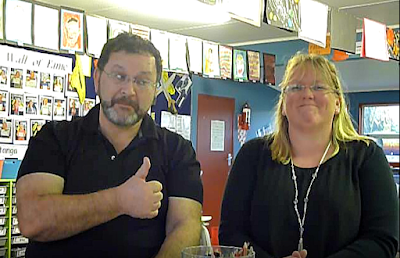Week 15 - LEADERSHIP - Teacher Inquiry into Student Learning
Teacher Inquiry into Student Learning
This week, in this course we are covering Teacher Inquiry into Student Learning, and in the digital and collaborative course we are covering inquiry learning. Team Solutions (2009) make the distinction between them as follows:
| Inquiry Learning (DIGITAL) | Teacher Inquiry (LEADERSHIP) |
| A process where students co-construct their learning in an authentic context | Where teachers inquire into their own practice and use evidence to make decisions about ways to change that practice for the benefit of the student |
Critical Inquiry
In the Practising Teacher Criteria (Professional Knowledge in Practice), critical inquiry is part of the criteria (Education Council (n.d.)
Criterion 12 is "use critical inquiry and problem-solving effectively in their professional practice"
The key indicators are:
- systematically and critically engage with evidence and professional literature to reflect on and refine practice
- respond professionally to feedback from members of their learning community
- critically examine their own beliefs, including cultural beliefs, and how they impact on their professional practice and the achievement of ākonga
Further details can be found on the Education Council Website.
Teaching as Inquiry
The NZ Ministry of Education also has a series of web pages explaining what they define as Teaching as Inquiry
The Spiral of Inquiry
This is described on the MoE's TKI website as “a fresh rethink on the structure of teaching as inquiry.” (Ministry of Education, 2015). It emphasises involvement of learners, their families and communities and developing learner agency. It states that engaging in inquiry is a process of developing collective professional agency either within a school or across a cluster of schools. The approach is described in Timperley, Kaser & Halbert (2014). They emphasise agency and collaboration: "Engaging in inquiry is a process of developing collective professional agency either within a school or across a cluster of schools”, and “Nor can leaders decide what the focus of their inquiry should be. It is the collaborative inquiry process that matters”
A number of teachers use this approach rather than the Teaching as Inquiry cycle, described in more detail on the Ministry web site.
Preparing for your Research and Community Informed Practice Assignments - Suggestions for getting started
In the Research and Community Informed Practice course, you will be doing an assignment based around a Teacher Inquiry project, following on from a literature review that will ideally be on the same topic. Here are a few ideas that may help you prepare in advance, adapted from Hubbard & Power (2003).
- Keep a teaching journal for at least a week. What surprises or intrigues you?
- Brainstorm a list of 10 things that you wonder about in your classroom.
- Be specific in your concerns
- Write down your draft question, as fully as you need to
- Focus your question with stems like “What is the role of…?” “How do …?” “What procedures…?” “What happened when…?”
References
Education Council (n.d.) Practising Teacher Criteria - Professional Knowledge in Practice. Retrieved from http://educationcouncil.org.nz/content/registered-teacher-criteria-1
Hubbard, R. & Power, B. (2003). The Art of Classroom Inquiry: A Handbook for Teacher-Researchers (Revised Ed.). Portsmouth, NH: Heinemann.
Ministry of Education. (2015). Before You Start. Retrieved from http://nzcurriculum.tki.org.nz/Teaching-as-inquiry/Before-you-start
Team Solutions. (2009). Thinking about Inquiry. Retrieved from http://teamsolutions.wikispaces.com/Teaching+as+Inquiry
Timperley, H., Kaser, L. & Halbert, J. (2014). A framework for transforming learning in schools: Innovation and the spiral of inquiry. Centre for Strategic Education. Retrieved from http://www.educationalleaders.govt.nz/content/download/74475/611763/file/Spiral%20of%20Inquiry%20Paper%20-%20Timperley%20Kaser%20Halbert.pdf


No comments:
Post a Comment